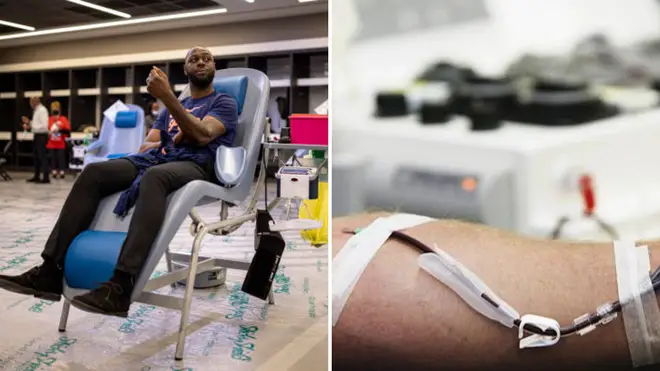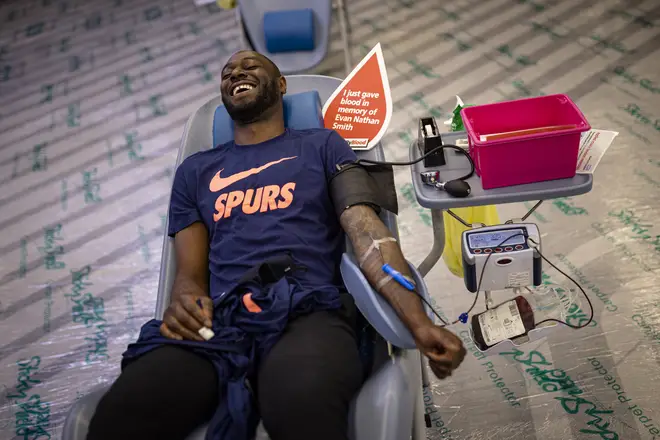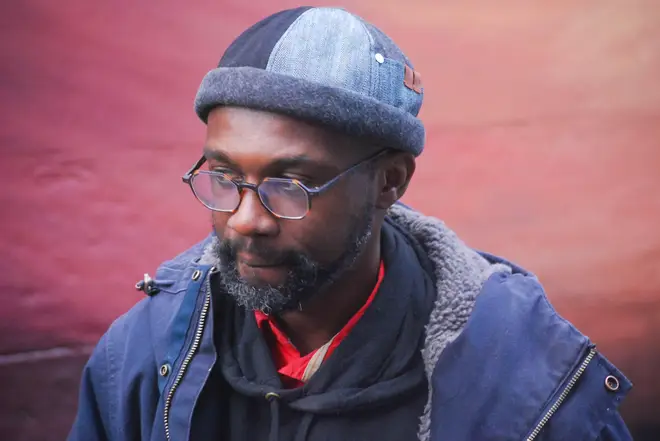
Dean Dunham 9pm - 10pm
16 June 2023, 08:57 | Updated: 16 June 2023, 09:39

One million more blood donors are needed to ensure patients receive the right type of blood to save and improve their lives, with a particular need for blood from black African, black Caribbean and young people.
Most people know the main blood types - O positive (35 per cent of the population), O negative (13 per cent), A positive (30 per cent), A negative (8 per cent), B positive (8 per cent), B negative (2 per cent), and AB positive (2 per cent).
But people are likely less familiar with the many sub-types that can provide an even better match to improve their treatment - including Ro, which is found mostly in black people.
Stephen Cornes, director of blood supply at NHS Blood and Transplant, said: "Currently we can only meet around half of the demand for Ro blood through our existing donor base and demand for this rare blood type is rising.
"This means many sickle cell patients often receive less well-matched blood which, while clinically suitable, can pose a longer-term risk to patients who receive regular transfusions. We urgently need new Black African and Black Caribbean donors to come forward and donate blood.
Listen and subscribe to Unprecedented: Inside Downing Street on Global Player

"In addition to the rarest blood types, we also need 1 million new donors over the next five years of all blood types. As the NHS treats more patients, we need to grow the total number of donors too.
"We carefully manage stocks to ensure we do not waste any precious blood. If you cannot get an appointment immediately it is because we have enough of your blood type right now. Please book for a later date or respond when we contact you."
Meanwhile a black British artist hopes his mural honouring black blood donors can encourage more "generous souls" to donate blood to save lives.
Neequaye Dreph, 49, from London, has unveiled a mural honouring members of the black community in England who donate blood to help those living with sickle cell disease.
Read more: Male GP turned away from blood donation after refusing to answer if he was pregnant
Read more: 'We've seen a huge shortage of blood' charity says, urges people to donate

The mural, which is displayed in the Stockwell Hall of Fame in London, forms part of NHS Blood and Transplant's Giving Type campaign which aims to change the misconceptions around sickle cell by encouraging more people of African and Caribbean heritage to donate blood.
Dreph's colourful artwork shows five portraits of black donors, wearing bright clothes, drawn against a black backdrop.
The painting highlights five "incredible" people who regularly donate blood to help patients with sickle cell and the street artist hopes his artwork will highlight the "very real and important issue" of sickle cell.
Dreph, who has been painting for 30 years, said: "Everyone in the black community knows someone with sickle cell.
"It's a very real and important issue that touches so many lives right here at home in the UK.
"I am grateful and humbled to have met these five incredible human beings who regularly give their blood to help patients with sickle cell, and I hope that this art will inspire more generous souls to come forward and save lives."
Clare Goodwin, whose son Jim has a rare blood type, said his life was saved by blood donors after he ruptured his kidney and renal artery in a freak rugby accident in February this year.
"He lost 2-3 litres [of blood], she told LBC's Nick Ferrari on Friday. "At that point your life is in danger and we didn’t know whether we were going to lose him.
"They were going to operate but at that point his blood pressure tanked, his heart went crazy and he was too unstable to operate on."
Ms Goodwin added: "They started a blood transfusion and they were pumping the blood into him… and then he stabilised, and they rushed him to theatre and then he had the operation.
"He was in intensive care for three days, and after day three the consultant sat by his bed and said to me ‘he’s going to make it’."
Visit www.blood.co.uk to find out more about giving blood.